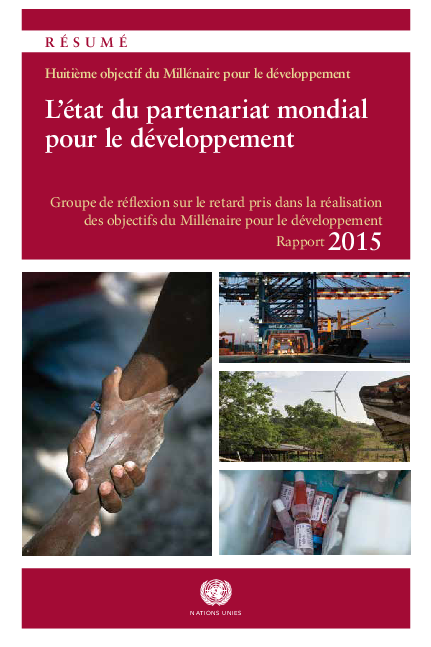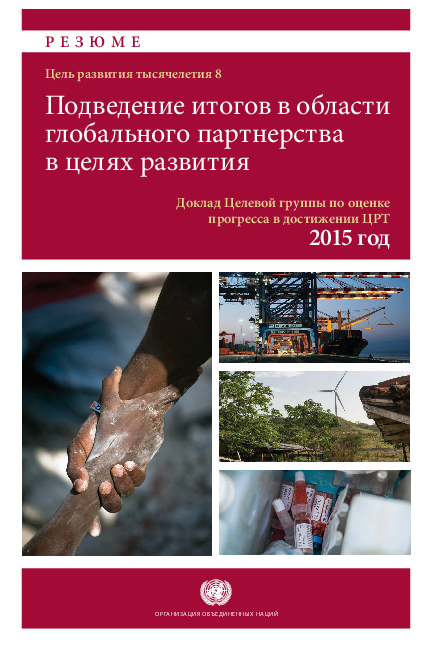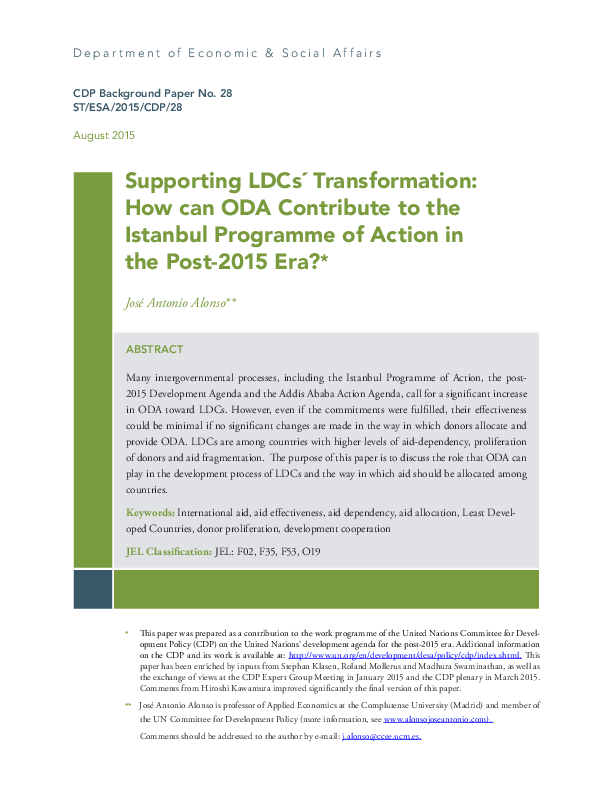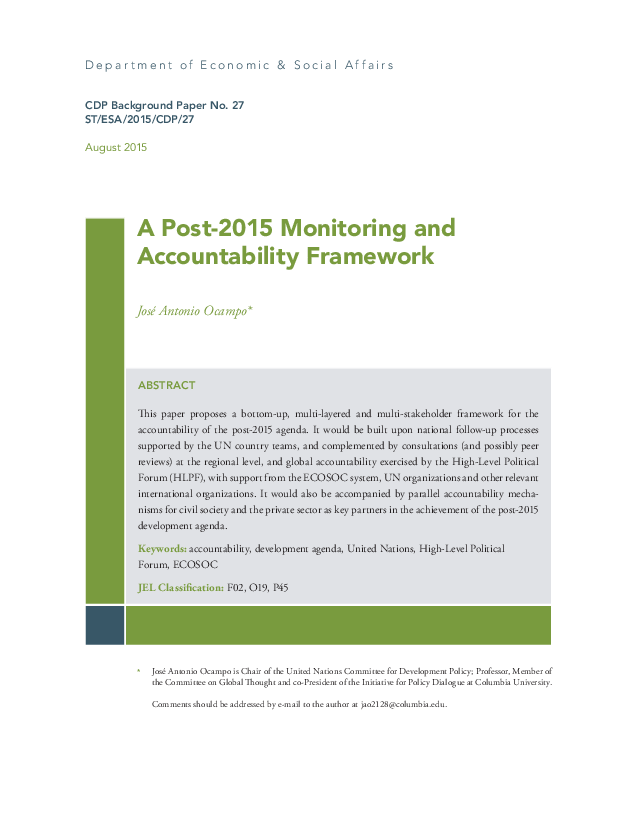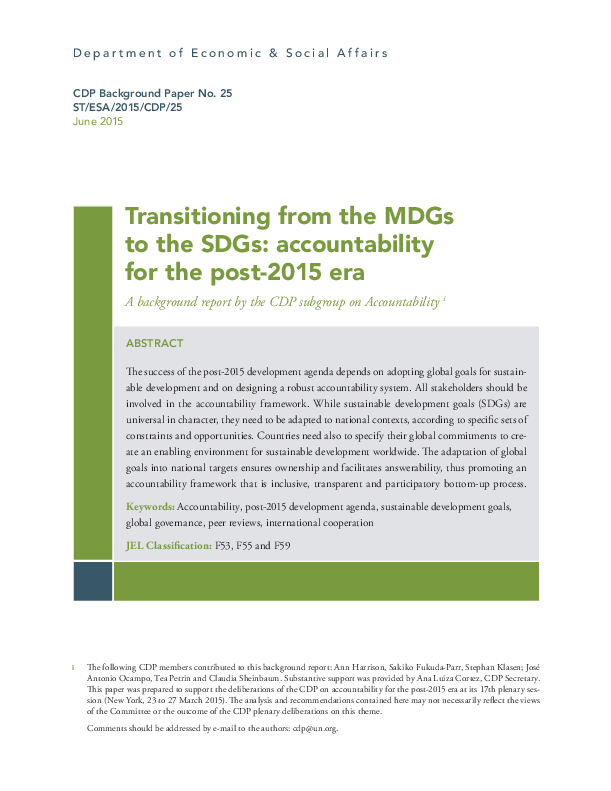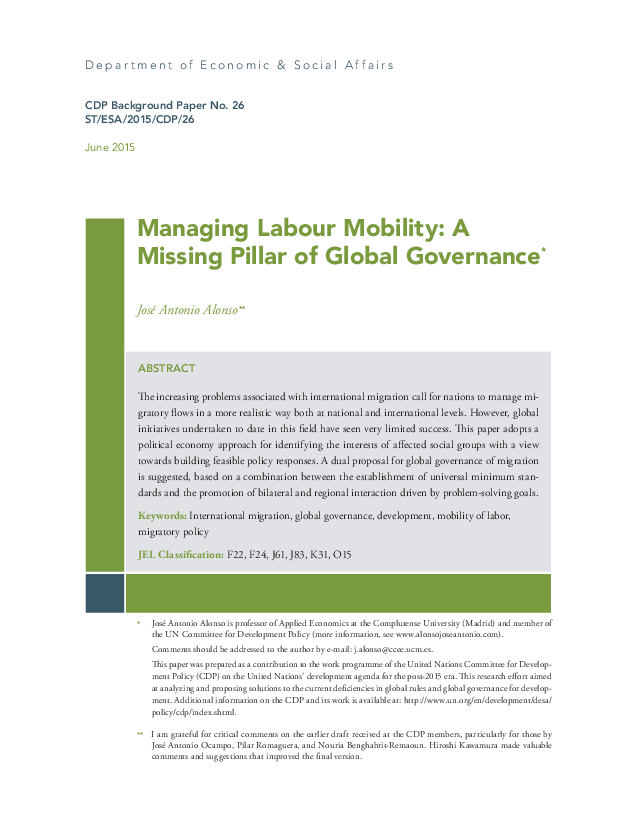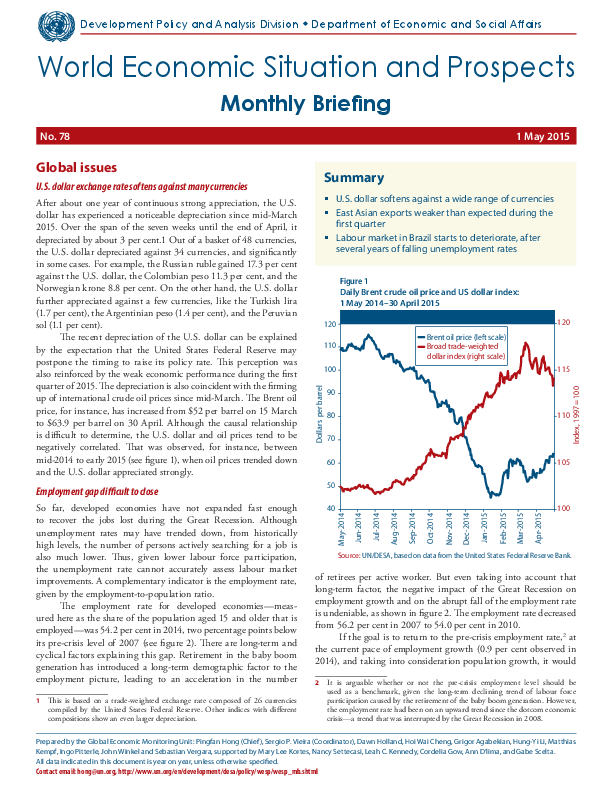Publications
Displaying 531 - 540 of 1100
Sales No.: E.15.I.5
ISBN: 978-92-1-101317-7 The 2015 Report continues to monitor the five core domains of the Global Partnership for Development, namely, official development assistance (ODA), market access (trade), debt sustainability, access to affordable essential medicines and access to new technologies, as prescribed by MDG 8. This year marks the last of the series of this monitoring process with a closing report tracking 15 years of the global partnership for development. As has been reported throughout the monitoring process, there have been significant positive developments pointing to an effective international partnership in the five domains, but several… MDG Gap Task Force Report 2015: Taking Stock of the Global Partnership for Development FR
Sales No.: E.15.I.5
ISBN: 978-92-1-101317-7 The 2015 Report continues to monitor the five core domains of the Global Partnership for Development, namely, official development assistance (ODA), market access (trade), debt sustainability, access to affordable essential medicines and access to new technologies, as prescribed by MDG 8. This year marks the last of the series of this monitoring process with a closing report tracking 15 years of the global partnership for development. As has been reported throughout the monitoring process, there have been significant positive developments pointing to an effective international partnership in the five domains, but several… MDG Gap Task Force Report 2015: Taking Stock of the Global Partnership for Development RU
عربي, 中文, English,?Français, Русский, Español Development cooperation with middle-income countries?(A/70/227)
عربي, 中文, English,?Français, Русский, Español 2015 Reports of the Secretary-General to the General Assembly
 Welcome to the United Nations
Welcome to the United Nations
